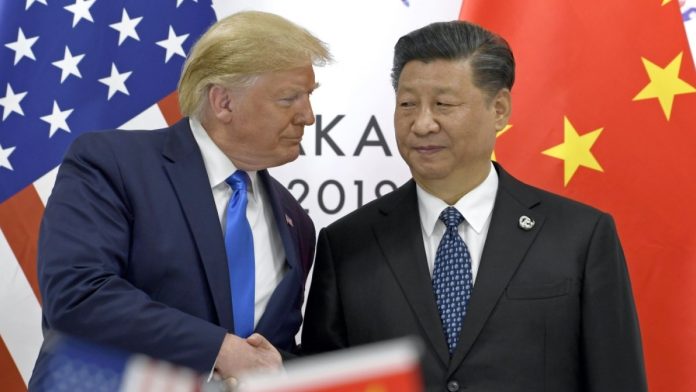US President Donald Trump has introduced his long-awaited “reciprocal” tariff plan, causing financial markets to react amid concerns of a global trade war.
Trump unveiled a 10 percent “minimum baseline tariff” on nearly all imports into the United States, with higher duties on specific countries to be phased in shortly after.
The goal of the new import taxes is to decrease trade deficits, bring back foreign manufacturing to US soil, and pave the way for future tax cuts, according to Trump.
Following Trump’s attack on a global trading system that he believes has disadvantaged the US, some of America’s major trading partners have promised retaliatory measures.
What was announced?
Using the International Emergency Economic Powers Act of 1977, Trump declared a 10 percent tariff on all countries starting on April 5.
Furthermore, he disclosed that there would be customized tariffs for countries with large trade surpluses with the US or those levying higher duties on American imports, to take effect on April 9.
Trump elucidated that these “individualized” tariffs were calculated by halving the charges he alleged these countries imposed on US exports.
For instance, the European Union is set to face 20 percent tariffs, while the United Kingdom will see a 10 percent levy.
China, having already been hit with 20 percent tariffs from Trump’s earlier actions, will now face an additional 34 percent, with Vietnam at 46 percent and Thailand at 36 percent.
Although exempt from the recent tariffs, Mexico and Canada are already subject to 25 percent tariffs on all exports not covered by the US-Mexico-Canada (USMCA) trade agreement.
Certain goods like copper, semiconductors, and energy will not be subject to reciprocal tariffs, as per a White House fact sheet.
Reciprocal tariffs are subject to change, with the possibility of negotiations with trading partners who take steps to address non-reciprocal trade arrangements, as per the White House document.
What did Trump say?
During an address to manufacturing workers, cabinet members, and journalists, Trump accused foreign nations of stealing US jobs, cheating in trade, and destroying the American dream.
He declared April 2, 2025, as a historic moment in American industry and destiny, claiming that the new tariffs would charge countries approximately half of what they had been charging the US.
Trump stated that the tariffs would not be fully reciprocal, explaining that while he could have opted for full reciprocity, it would have been difficult for many countries, hence the decision to avoid it.
What have target countries said in response?
Within minutes of Trump’s announcement, global leaders criticized the tariffs as damaging and promised countermeasures in response.
China vowed to safeguard its interests in the face of US tariffs, which now amount to 54 percent on Chinese imports.
While not confirming retaliatory measures, China criticized the US for its subjective and unilateral imposition of tariffs, calling for dialogue to resolve differences.
A similar sentiment was echoed by Taiwan, which termed the tariffs highly unreasonable, expressing deep regret over a 32 percent tariff on its exports.
Australian leadership condemned the tariffs as unfriendly and unjustified.
European Commission President criticized the EU being hit with a 20 percent tariff, warning of dire consequences for the world economy.
Canada also expressed concern during the crisis, with the Prime Minister vowing to resist US tariffs.
Which countries will hit back with their own measures?
As reciprocal tariffs are set to take effect on April 9, countries have a window to negotiate with the US or respond with their own tariffs.
Canada and the European Union are among those ready to retaliate against US tariffs.
The EU is prepared for a trade war and plans to implement responses initially targeting aluminum and steel, with broader measures on all products and services to follow.
According to analysts, China is likely to consider retaliatory actions against the US.
Which countries will likely prefer diplomacy?
Mexico and Britain have indicated a diplomatic approach rather than immediate retaliation to US tariffs.
The UK is engaging in discussions to avoid or minimize tariffs imposed by the US.
Many Asian countries may opt for diplomacy over confrontation with the US, given the importance of the US as a source of demand, analysts suggest.
Financial experts predict that most nations will opt for alternative policy measures over retaliatory tariffs.
Central banks are expected to ease monetary policies, while international trade could see disruptions and shortened supply chains, indicating the decline of the multilateral trade era.
How have markets responded?
Global markets experienced significant losses as investors reacted to the looming threat of a trade war initiated by the US.
Stock indices in the US, Europe, and Asia saw declines, with investors turning to gold as a safe-haven asset amidst market volatility.
Concerns about supply chain disruptions, inflation, and a possible recession have led financial institutions to adjust their forecasts and warn of potential economic impacts.






